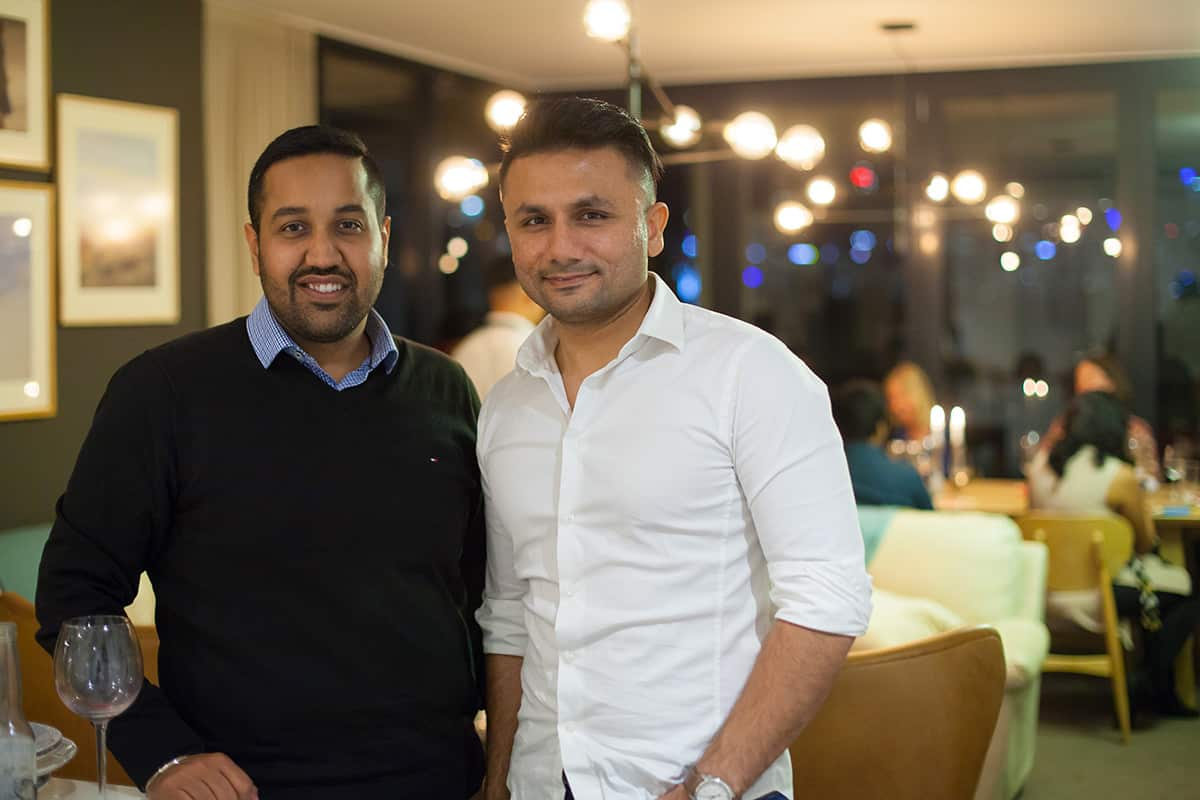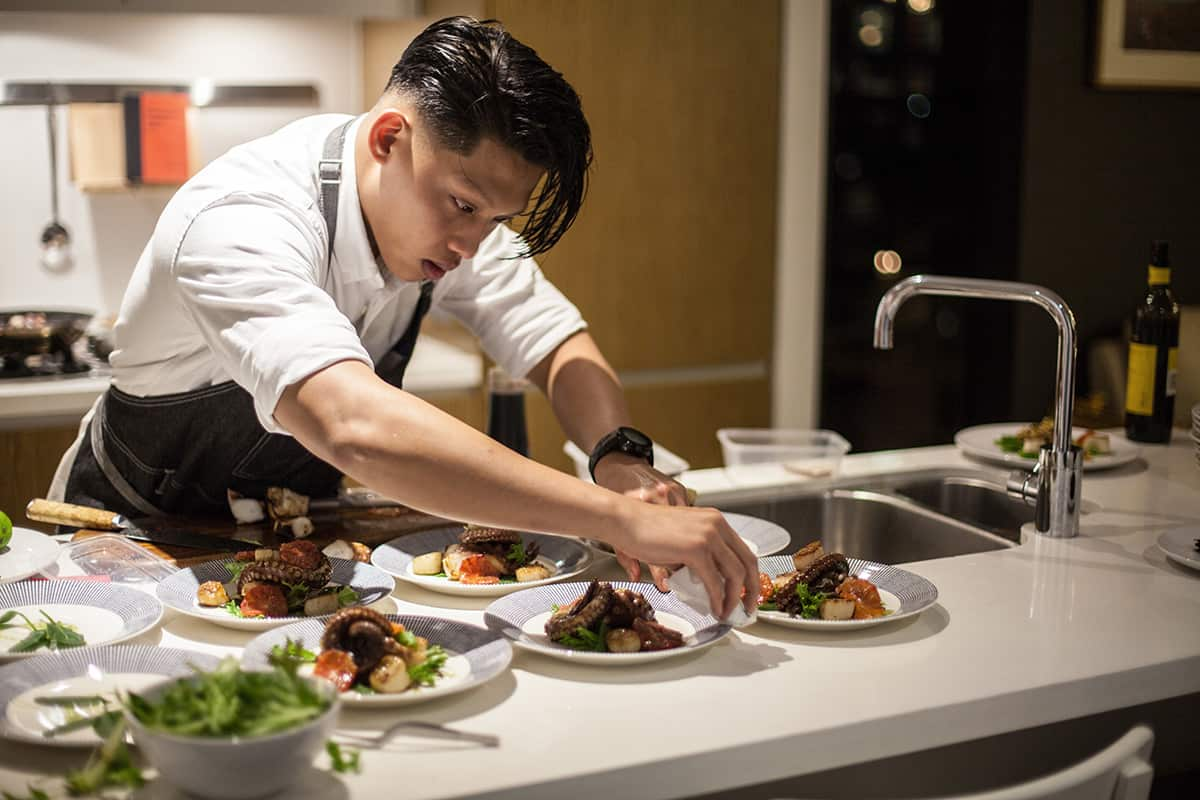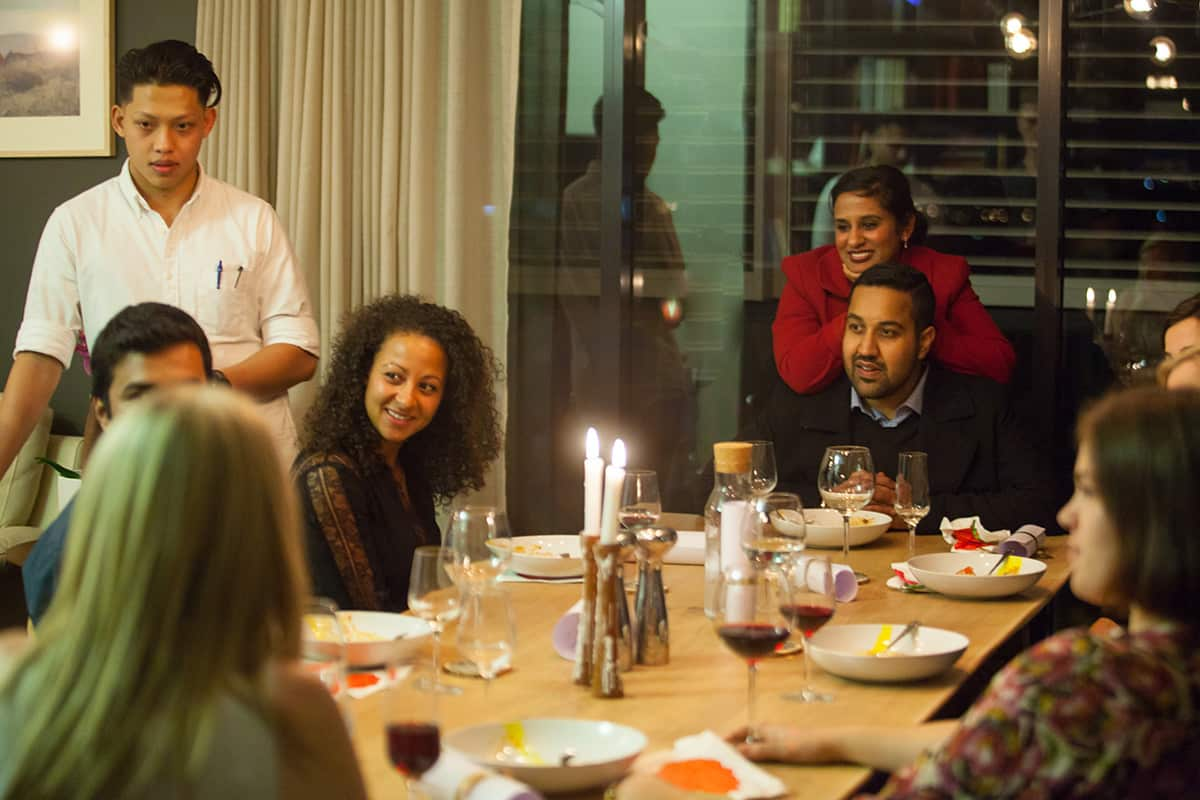Foodikted is a new platform set to launch that could help you host a pop-up dinner in your own home, or eat a home-cooked feast in a stranger’s house.
“We’ve got so many friends from different backgrounds, and what their families cook at home, we can’t find in restaurants – we wanted to eat and enjoy that authentic food,” says Nitin Mediratta, one half of Foodikted along with his best friend, Gaurav Bhatt. Both come from technology backgrounds and both love food.
Hosts choose a menu, set a venue, decide on the maximum number of seats, and set a price. They upload pictures of their kitchens and what they might serve. Guests can then filter by cuisine, and search for an event. They send a booking request, and the host has the right to decline or accept.
It opens the doors to so many excellent specialities that are eaten in homes across Australia, but often don’t make it onto restaurant menus. Nitin and Gaurav both come from Indian backgrounds and know this too well.

“When I was growing up, I had no idea what butter chicken was, it’s not an Indian dish,” says Nitin.“There are so many curries my mum cooks at home that I can’t find elsewhere. Red bean curry, for instance, or goat curry done in a way that you won’t find in restaurants. The restaurant version would be creamy and oily,” says Nitin.
At trial events in Sydney, Melbourne and Brisbane, a fine-dining chef made the deconstructed sushi he likes to cook after hours, and another host made a Vietnamese curry that was new to her guests.
“We’d been looking at cafes and restaurants and so many food businesses, but nothing really excited us,” he says. “I come from a technology background, I’m a big fan of Airbnb and Uber, so we wanted something that was disruptive, that used technology, and was about food.”
Foodikted has been months in the works. The platform is planned to go live on August 16, though you can sign up now and create an event before the launch.
Hosts and guests go through the same sign-up process, which involves verifying your identity. From there, hosts can create an event, which can be anything from a three-course meal to a cocktail party. “It can just be one thing that you make that is great,” says Nitin.

Like Airbnb there’s a two-way review system, which helps make people comfortable welcoming strangers into their homes. Hosts pay a 15 per cent platform fee, and receive payment 24 hours after the event, which allows Foodikted to investigate any complaints from guests.
In addition to eating, there’s a strong focus on meeting new people, and harnessing the social capacity of technology.
“We wanted to use social media to bring people together and make it more social. This is something that would take you out of your comfort zone,” says Nitin. They even plan to introduce mobile phone-free dinner parties.

Like most ideas in the sharing economy, and particularly to do with food, there are bound to be legal framework hurdles. “We’ve got a team of lawyers making sure we stay within the boundaries, we’ve got the safety of our foodies as a number one concern – their own safety, and the safety of their guests,” says Nitin.
“At Foodikted we don’t take food safety concerns lightly.
“We have emphasised to our hosts the need to ensure compliance with food safety rules and practices and any feedback we receive about a breach or issue that arises will be dealt with seriously and may lead to termination of the host’s participation in Foodikted.
“Our review and feedback system will help determine these breaches where guests will be able to report any healthy and safety concerns at a host's venue,” Nitin says.
“Uber went through the same problems but at the end of the day you’ve got to allow disruptive technologies to come in, you’ve got to adapt to it.”
Ultimately, he says, “We want our members to feel secure and enjoy themselves”.
SBS Food is a 24/7 foodie channel for all Australians, with a focus on simple, authentic and everyday food inspiration from cultures everywhere. NSW stream only. Read more about SBS Food
Have a story or comment? Contact Us

